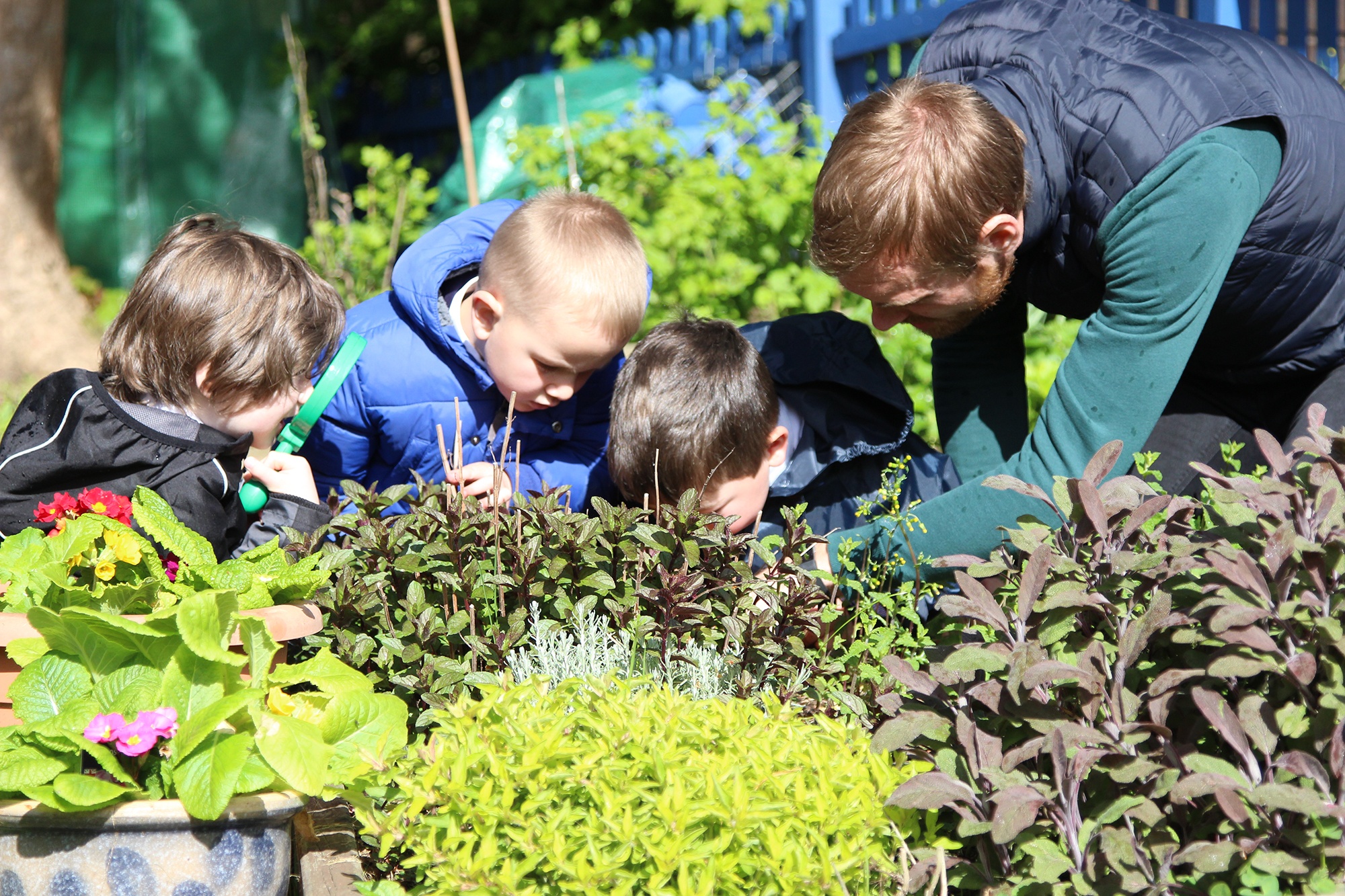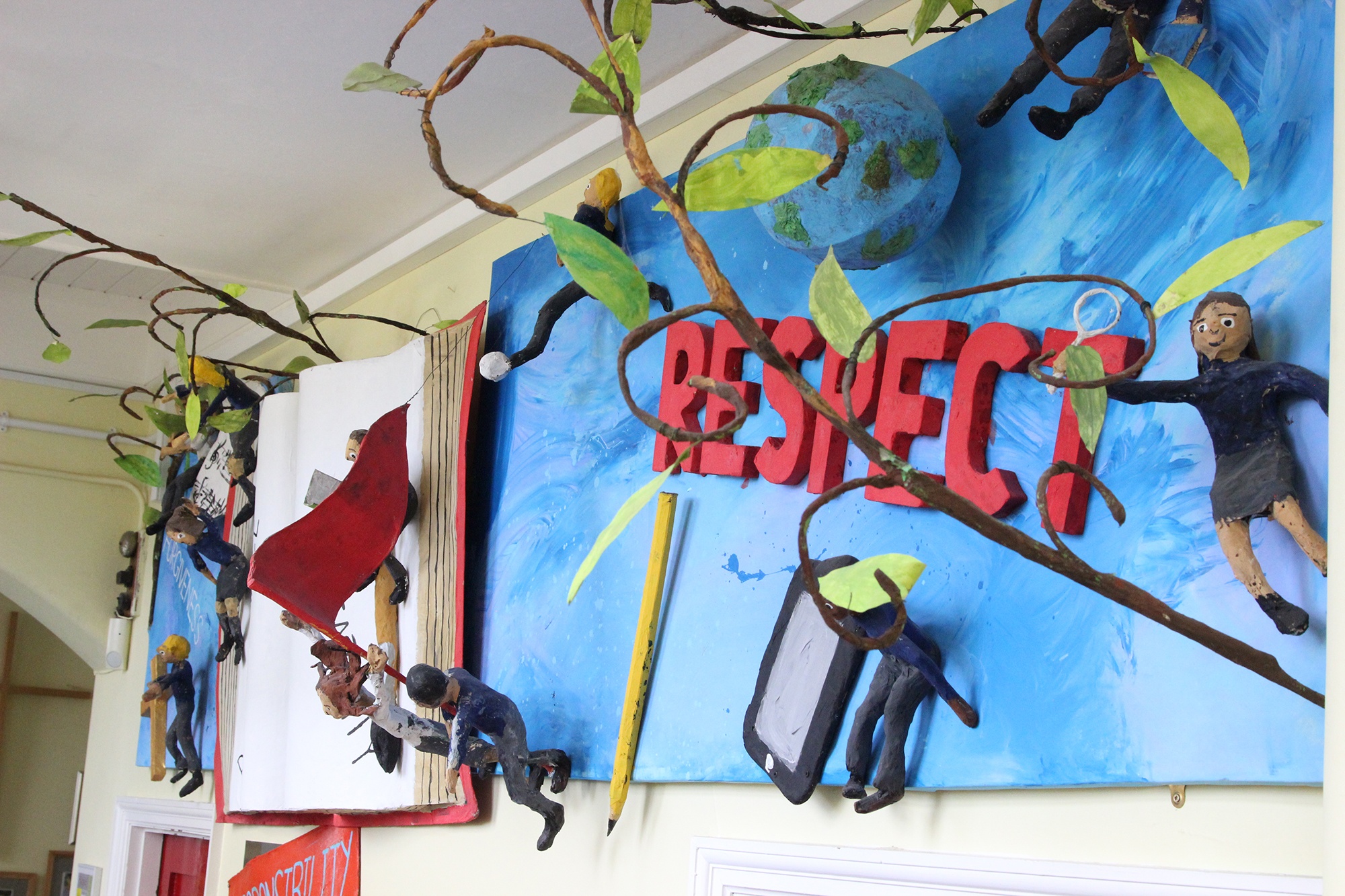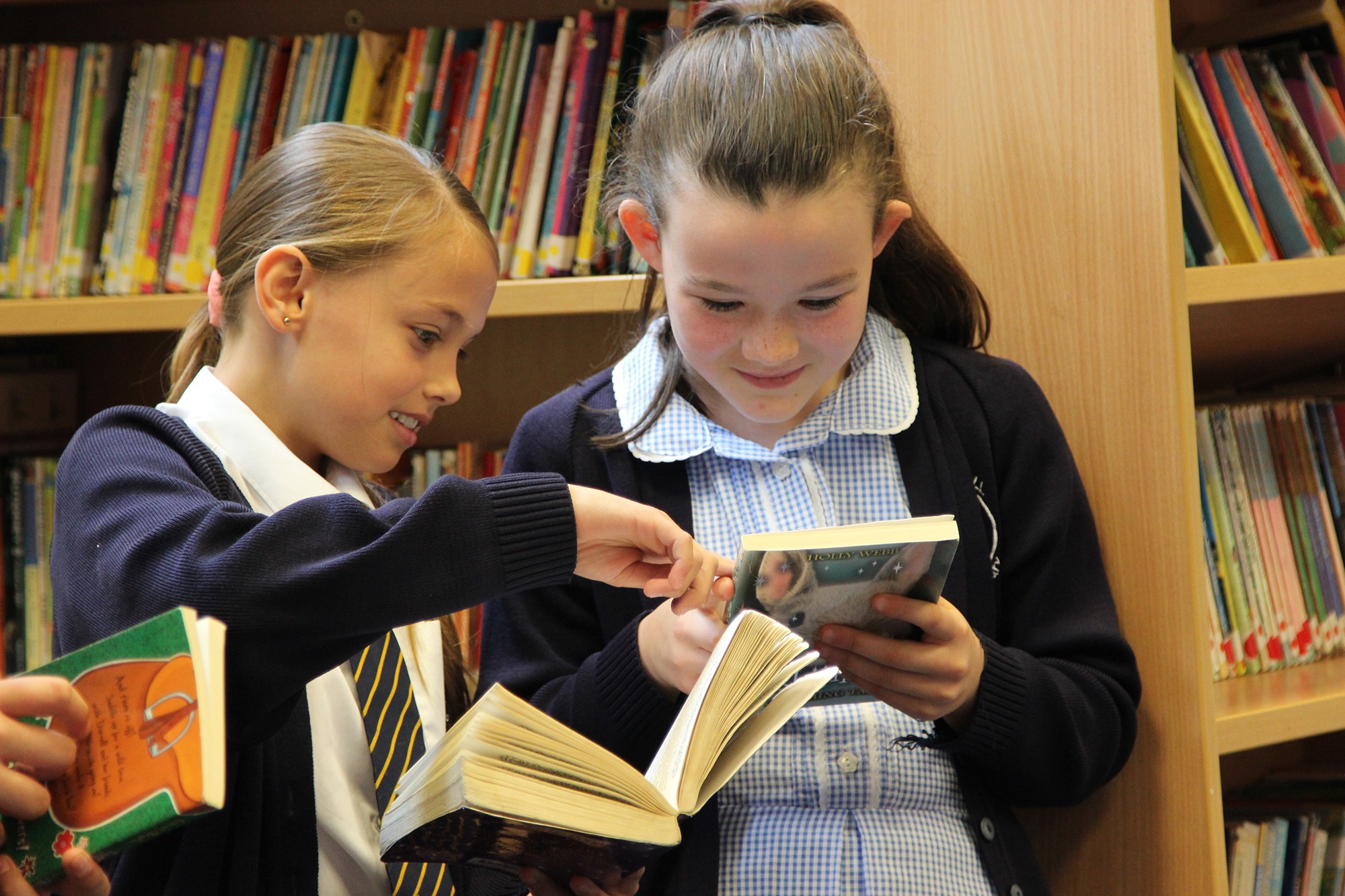English
English underpins all areas of the curriculum and is the gateway to lifelong learning. The teaching of English at Rusthall St Paul's aims to motivate and enable children to access worlds beyond their own.
Reading
Children are exposed to a wide range of authors, beyond their own knowledge to nurture a genuine passion for literature. Within the school day, children will have opportunities to enjoy books through guided reading texts, which link to current learning, independent reading and a separate class reader, which the children will find interesting and ambitious in content.
Classrooms are environments which enhance engagement of reading through captivating and well-used book corners and a culture of reading. Working walls are used to promote and stimulate interest in the guided reading text as well as support learning of skills taught and sentence stems to enable children to articulate their thoughts and ideas.
How reading is taught
EYFS: Daily phonics is taught following the Little Wandle scheme which explicitly teaches word reading and comprehension skills which improves fluency through storybooks and non-fiction. Daily story time, where the class teacher/TA develop the love of reading by bringing the stories to life modelling storyteller voices, using actions to emphasis key vocabulary and opportunities for the children to join in. Storytelling is also taught through helicopter stories, drawing telling and the provision is designed to support and enhance storytelling. Helicopter Stories lets children dictate their stories which are written down verbatim, exactly as they are told, by an EYFS or Key Stage 1 practitioner. The children then gather around a taped out stage and the stories are acted out. The staff lead the children in drawing club, where each week the staff share a traditional tale, cartoon and story and the children will learn the language through actions to recall key words and they will then change and develop the story through their drawings.
KS1: Daily phonics is taught following the Little Wandle scheme which explicitly teaches word reading and comprehension skills which improves fluency through storybooks and non-fiction. In Year 2 and more able year 1 daily guided reading improves fluency but also explicitly teaches skills needed to appreciate and comprehend a broad range of authors across a wide range of genres. Texts are carefully selected based on learning experiences. Within guided reading children are explicitly taught through teacher modelling how to: retrieve, predict, infer, question, summarise and clarify vocabulary. Each child is given a copy of the text which is read together as a group, with opportunities to discuss language and content. The class teacher will read a text to the class for pleasure giving opportunities to explain new language and developing love of reading.
KS2: daily guided reading improves fluency but also explicitly teaches skills needed to appreciate and comprehend a broad range of authors across a wide range of genres. Texts are carefully selected based on learning experiences. Within guided reading children are explicitly taught through teacher modelling how to: retrieve, predict, infer, question, summarise and clarify vocabulary.
Each child is given a copy of the text which is read together as a class, with opportunities to discuss language and content. One of the reading skills is then taught and modelled by the class teacher, using the text read. Analysis and discussion are encouraged to foster understanding so that children become critical thinkers. Follow up questions then provide children the opportunity to practice these skills independently.
Writing
High quality and purposeful writing is taught daily. Extended writing opportunities are planned for and prioritised throughout every stage of learning to promote and deliver a high stamina for writing. By the end of key stage 1, children should be able to write for at least 20 minutes, at least 30 minute by the end of year 4 and at least 45 minutes by the end of year 6.
To ensure children are reaching the highest possible standards of writing, quality expert pieces are shared with the children and referred to frequently as model of excellence. Expectation of genre specific features are also clarified with the children to enable them to be active and reflective within their learning. Teachers refer to the genre overview to ensure the coverage of genres is met, enabling children to write for a wide range of real life purposes.
The highest standard are always taught and modelled so children aspire to make their writing the best it can be and do this through a revising and editing process. Teachers use a range of techniques, including but not limited to: talk for writing (in key stage 1), shared and modelled writing, checklists and also examples to scaffold children’s ideas and promote confidence in their writing.
Spelling
Spelling is explicitly planned for and taught to promote the highest possible standards. Spelling rules are taken weekly and paired with subject specific words, taught through short, engaging frequent lessons. Reminders of current spelling rules are present within books to support children to apply and transfer these rules. To promote over learning, children are assigned spellings which follow the focused rule to learn as part of their homework. Tests are then given at the end of the week. From Year 1-4, 8/10 spelling words come from the spelling rule with 2 being repeated from the prior week. In Year 5 and 6, 2/10 are words come from the prior week, 5 are set based on the spelling rule and 3 follow the spelling rule but are unseen by the children prior to the test to promote the importance of learning the rule and applying it independently.
Working walls are used to support children with current spelling patterns and examples of words following the pattern. Where words are spelt incorrectly within written work, error are identified by the class teacher and children write the correct spelling five times in their thinking bar on the next page. This will allow children the opportunity to practise the correct spelling but also provide them with a visual reminder for their next writing opportunity.
Handwriting
Explicit high quality teaching of handwriting and opportunities to practise through to Year 4 will equip children by Year 5 and Year 6 to demonstrate expert standards of cursive handwriting. Children should be taught specific handwriting skills between 2-3 times a week in short bursts. Where individual children have struggled to master handwriting through lessons, bespoke and personalised interventions will be provided to support their development. When an explicit handwriting skill has been taught and practised in handwriting books, a sample will be added into the books as a visual reminder and a personal reference guide.
Punctuation and grammar
Weekly punctuation and grammar lessons focus on specific knowledge and skills outlined in the national curriculum. Through short, interactive sessions children are taught correct terminology, purpose and function for year group specific knowledge and skills.
Revisiting prior learning is essential to help embed key knowledge and skills. Teachers have a secure understanding of learnt punctuation and grammar and uphold the highest standards within all writing across the curriculum. Teachers challenge errors in punctuation and grammar and use errors to inform planning when revisiting previous content.





